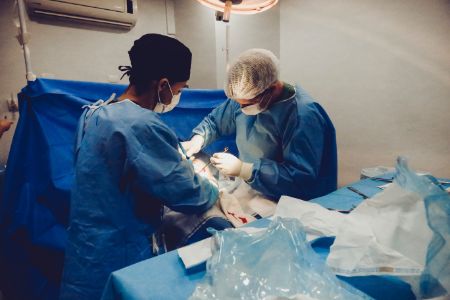Penile cancer isn’t very common, but it’s tough to diagnose and treat. How well someone recovers can depend on many things, especially their age.
As the world gets older and more folks move into retirement homes, getting a grip on how aging affects this disease is really important. In this piece, we’re going deep, looking at the ways age impacts penile cancer outcomes in older adults.
Age-Related Risk Factors and Incidence Rates
The older you get, the more likely it is for penile cancer to appear. It’s seen a lot in men over 60. Why? Things like weaker immune systems as we age and being exposed to risks for longer periods of time play their part.
Plus, late diagnosis can be an issue. Also, genetic mutations that might lead to cancer tend to pile up as we grow old. Knowing these things helps us spot signs early and work out how best to stop it from happening at all.
Treatment Options and Age Considerations
There’s a whole mix of ways to treat penile cancer – surgery, radiation, and chemo. But age really matters when picking the right one. Older folks often have other health problems that make harsh treatments like chemo harder for them.
Then, there are side effects and recovery times. They can hit elderly patients hard, too. Doctors must weigh up treatment benefits against these risks and consider their older patient’s quality of life, making age key in planning treatment.
Prognosis and Survival Outcomes Based on Age
Age plays a huge role in penile cancer outcomes. Research shows younger folks generally survive better than older ones. Lots of reasons are there – other health issues alongside cancer, different tumor behaviors, and how well patients can handle strong treatments, to name a few.
Plus, often older people get their diagnosis late, which means the disease has already progressed a lot by then. All these factors collectively influence the survival outcomes based on age.
Impact of Other Factors and Considerations
Age matters a lot when it comes to penile cancer outcomes. But other things do, too, like lifestyle choices, genes, and where you live or work. For instance, circumcision, often performed at a young age, has been linked to a reduced risk of penile cancer.
When doctors are working out risks for patients of different ages, they have to think about all these factors together. That gives them the best shot at coming up with treatment plans that really fit each person’s needs.
Conclusion
To wrap it up, age makes a big difference in penile cancer outcomes. It changes risk factors and how well treatments work. Older folks face unique health hurdles that require special treatment plans taking their specific needs into account. This highlights the value of personalized medicine for those battling this disease type.
Knowing the ins and outs related to age helps doctors balance effective treatments with patient comfort and quality of life. This provides not just better chances at beating it but also ensures each person’s journey is centered around them as an individual.



